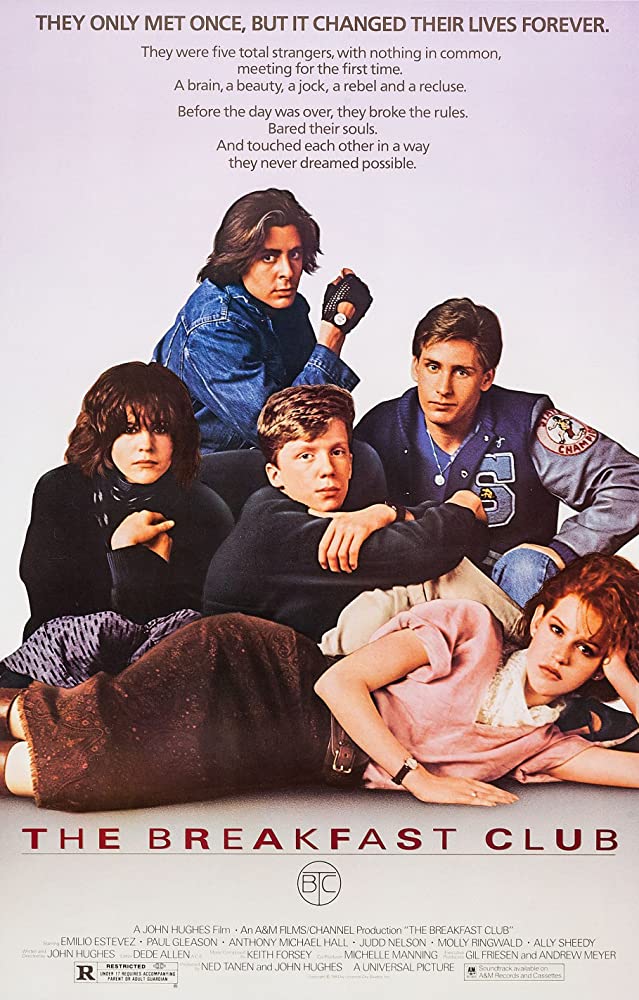I wrote a letter to two schools I’d attended as a troubled youth. And then, they wrote back.
Dear teachers and staff,
I’m writing this to say thank you for your kindness.
And I’m writing this to say sorry that I disrespected you. I didn’t give you my best.
I hope that in reading this, you’re able to gain some understanding and recognize the appreciation that I didn’t show. I hope in knowing this, you can carry my words with you when encountering others like me.
I was 15 years old when things started getting really bad in my life. I was acting out, refusing to go to school, and losing interest in taking my education seriously.
Thank you, school “S” for recognizing my behaviour as a red flag. Thank you for feeding me when I didn’t have money, not even knowing that was likely all I would eat that day. Thank you for pulling me into your office and asking the questions no one else cared to ask. “What’s going on? How do you feel?” Thank you for listening to me and doing what you thought was best.
At the time, however, “what was best” actually had an adverse effect. Reporting my situation to the authorities wasn’t helpful, though I know it was intended to be. It brought light to a dark truth that I was completely alone with, and I thank you because you cared. But doing the right thing meant there would be ugly consequences for me at home. And so, after having spoken my truth when asked, the fear that was instilled from those consequences ultimately quieted me from speaking my truth again for years to come. I was afraid to speak my truth because it hurt the people I loved, which hurt me even further.
When I moved back to school “A,” I carried this with me. I told no one anything—not about what my home life had been like, what I had been through, nor how much all of it hurt me.
Instead, I raised my voice when I shouldn’t have because there was a fire burning inside of me that I didn’t know how to put out. I tried to ignore it, and that caused me to act out. I skipped class, I walked out on you, I argued with you, I celebrated my suspensions, and I made big scenes where I yelled at you for no reason other than to feel some sort of power.
For this, I apologize. You and I both know you didn’t deserve it. Thank you for not letting me break you.
Here I am, 31 years old, reflecting upon those days, and finally wise enough to see why I behaved the way I did. I’m sorry to those who I treated poorly. I didn’t take my school environment seriously because I was facing problems bigger than equations and test answers. I was hurting. I wasn’t given the proper coping skills that I needed to help me to deal with my situation or my feelings properly.
Thank you to everyone at that school for being your wonderful selves despite my awful behavior. Thank you for encouraging me to stay, even though I ultimately chose not to.
Knowing what I know now, I hope that I’m raising kids who don’t feel the need to do the same. I hope that I’m teaching them not to fear their truths. I hope that I’m giving them the tools they need, while teaching them what’s appropriate and what’s not, especially when it comes to how they handle their feelings. I hope that I’m breaking the cycle within my family.
Thank you for your love and patience—it did not go unnoticed. Keep shining!
Sincerely, Me.
~
After sharing this letter, these are the messages I received in return:
“Thanks for sharing this with me. Some truths to share with you:
>> We usually know something is going on and feel bad we can’t help.
>> We’re always glad when things turn out well for our kids that have a tough time when we knew them.
>> We know that at 15 , you’re not who you’re going to be.”
And:
“I love this. I am a teacher. Elementary, but still, it’s always so helpful to hear a thank you and more importantly to keep remembering that a lot of kids are experiencing situations that are beyond heartbreaking. Thank you.”
And:
“Once one of ‘my kids,’ always one of ‘my kids.'”
~
To the troubled teen who is lost in the trauma and turmoil of home life and hormones:
Remember that everyone involved is doing the best that they can with what they have, children and teachers alike.
Our teachers’ smiles matter. Their compassion and patience matter. And teachers notice more than kids think they do. Sometimes, they feel powerless, and sometimes, they need to be reminded of how great their impact actually is.
My experiences at school have stuck with me and still do today, even 16 years later. I hope to have been able to ripple that back to them. And I hope that if you’re reading this and finding a piece of yourself in my story, that you find a way to do so, too.
If you’re a parent, struggling through your own healing, let your kids speak. Let them express themselves, let them find a healthy outlet, and help them find a person to lean on when you can’t provide what they need yourself. Notice the warning signs and put a wedge in the cycle.
To everyone in their individual situations, at any point on your journey, remember that compassion and kindness go a long way. Every act of love—even a little thank-you letter—makes a difference.







Read 6 comments and reply